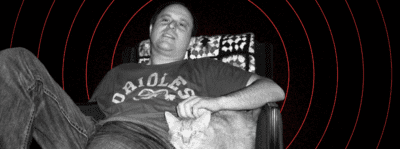You Will Swoon Through Bat For Lashes’ Tender And Traumatic New Album The Bride
Natasha Khan has a voice like a public spectacle; it shimmers with drama and magnificence, beckoning your attention but also training your ear toward trauma. This makes her voice an easy veil for darkness, because it feels and sounds like a safe place, only to twist the knife lyrically and deliver operatic nightmares and tales of terror. Khan’s solo work as Bat for Lashes has reached a summit on The Bride, her fourth full-length record and a concept album of sorts.
It follows the dreadful story of a bride whose groom dies while traveling to meet her on their wedding day, but delves beyond this narrative into more opaque issues of trust, intimacy, grief, and betrayal. The album assumes the perspective of the bride, now wed to tragedy instead of her beloved. Which, of course, turns out to be a much more interesting love story than a happy ending would have provided; our tender protagonist’s ensuing trip through the hoary crux of grief—the loss of an envisioned potential—proves more captivating than any fulfillment.
http://www.youtube.com/watch?v=Ds9eR3UbOXk
The Bride is a medieval tapestry of grief so fierce it has taken the wheel, driving the wedding limo on a wild goose chase of legendary proportions. It’s a re-imagination of a personal grief as a cosmic sorrow, insisting on its own importance, and achieving it through sheer force of will. Armed with her octave-spanning vocals and a sharpened sense of the dramatic, Khan pulls on the threads of The Bride’s story until it unravels in a heap of long-fated sadness.
The first four tracks are a suite of desperate premonition, even album opener “I Do” is two minutes of strummed bliss that rings out as, quite literally, too good to be true. “Joe’s Dream” is all premonition and thunder clouds pregnant with a storm to come, hewing the closest to the gloomy pop of her 2012 record The Haunted Man. The next two, “In God’s House” and “Honeymooning Alone,” present an ominous, beautiful lacework of the moments when loss hits—the tearing of the veil—and the dizzy blue of anger in the period right after.
For all the straightforwardness of these first few tracks, it’s when The Bride drifts toward the spectral that the record unfolds in earnest. “Never Forgive The Angels” is the album’s clear centerpiece, marrying a solemn, spare bassline with gossamer harmonies and Khan’s own plaintive melody that belabors her grudge against death with ferocious hope.
“Widow’s Peak” is a spoken word prophecy that transforms grief into a mountain to be climbed, the widow into a spirit on the wind searching for vengeance. Perhaps it’s the story-album’s nearly mythological framework that makes lines like “you know I love you till the stars don’t shine” on “Close Encounters” feel poignant instead of porous. There is dignity, too, in insisting that your love remain as timeless as your grief.
“Sunday Love” is a cloud of paranoid passion, one of the sexiest tracks here, except, maybe, the sweeping confidence of “I Will Love Again.” Because for all its pain, The Bride orbits around three principles–that love for what is lost and can never be regained is sacred, that this love need not be abandoned to heal, and that a new love will appear, eventually eclipsing the spectacle of grief.
The second to last track, “In Your Bed,” guides the listener toward that last principle and suggests that when it comes, it will be as easy as lying down. All the pomp and circumstance of a wedding can crowd out a vision of true intimacy: the wild simplicity of looking into each other’s eyes. Maybe there is no shining spectacle in such a mundane act, but there are no nightmares, either.
The Bride is out tomorrow, 7/1 via Parlophone. Get it here.
You might also like 




















